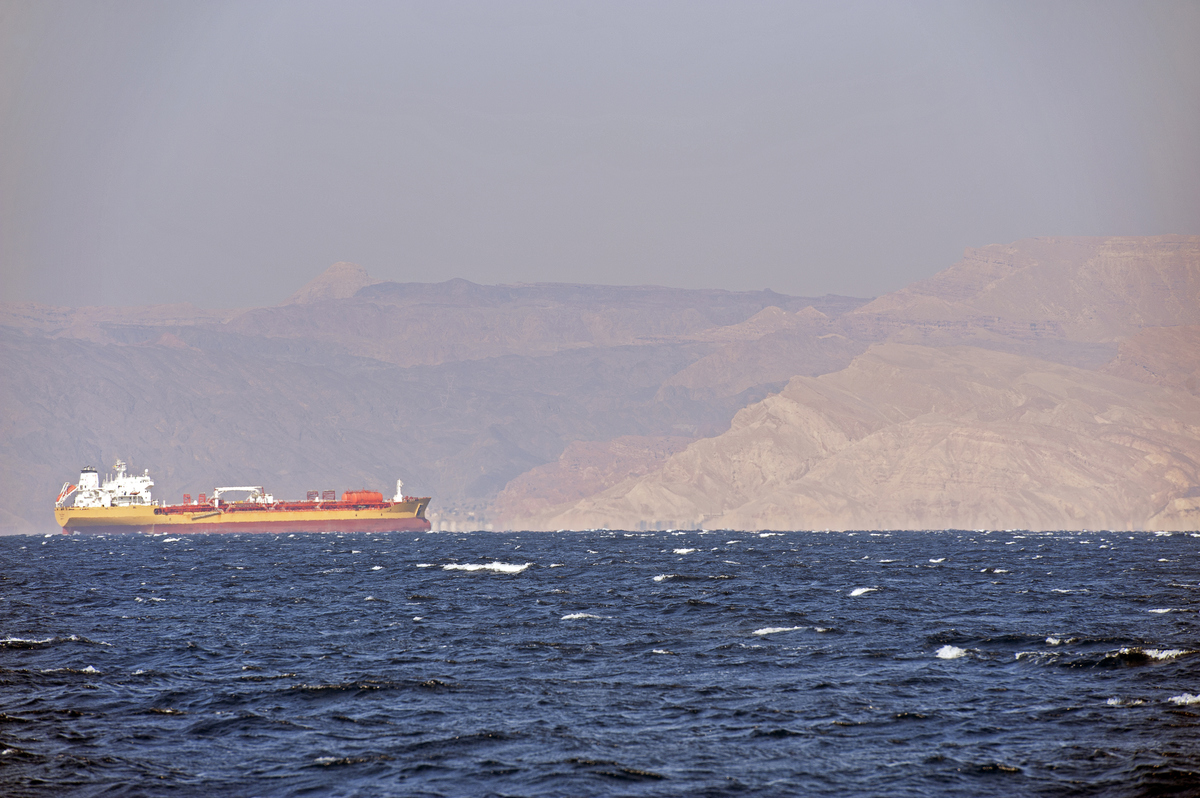Red Sea attacks force more shipping companies to look to Africa
Taiwanese shipping company Wan Hai Lines joins the growing list of shipping companies deciding to reroute their vessels around the Cape of Good Hope to avoid the Houthi-plagued Red Sea route.
 PHOTO: Cargo ship makes headway towards the Red Sea port of Aqaba, Jordan with the Sinai desert in the background. Getty Images
PHOTO: Cargo ship makes headway towards the Red Sea port of Aqaba, Jordan with the Sinai desert in the background. Getty Images
Persistent airstrikes and drone attacks on merchant ships in the Red Sea by the Yemeni militant group Houthi have made sailing through the region risky for ships. This has compelled action from the US, which has launched a multinational force to alleviate the crisis.
But Mohammed al-Bukhaiti, a Houthi spokesperson, posted on social media that the Houthis will confront any US-led coalition in the Red Sea, stoking fears of a further escalation of the crisis.
Several shipping companies have decided to take the longer route around Africa via the Cape of Good Hope or temporarily suspend operations in the Red Sea region to avoid attacks.
Safety paramount
“Our focus remains on ensuring that safe passage is upheld and that seafarers are protected and can continue to serve the world economy without fear for their lives,” a spokesperson from shipping association World Shipping Council tells ENGINE.
In line with this, Taiwan’s Wan Hai became the latest company to reroute vessels out of harms way. The company announced that it will either divert vessels around Africa or make them wait in a safe location until the Red Sea situation improves.
Prior to that, Japan-based Ocean Network Express (ONE) decided to take the longer route to avoid the Red Sea. The company will either reroute its vessels around the Cape of Good Hope or temporarily hold them in safe locations until further notice. ONE is jointly owned by Japanese shipping lines Nippon Yusen Kaisha Line (NYK Line), Mitsui O.S.K. Lines (MOL), and Kawasaki Kisen Kaisha (K Line).
Shipping companies, including Germany-based Hapag-Lloyd, Taiwan-based Yang Ming Marine Transport and France-based CMA CGM have all announced Cape of Good Hope reroutings until the crisis dissipates.
Other shipping companies that have decided to take the longer route include Taiwan’s Evergreen, South Korea’s HMM, Switzerland-based Mediterranean Shipping Company (MSC) and Norway’s Wallenius Wilhelmsen.
Hapag-Lloyd’s vessel Al Jasrah was attacked by Houthis on 15 December, while Maersk’s vessel Maersk Gibraltar was involved in a near-miss incident on 14 December.
Belgian shipowner Compagnie Maritime Belge (CMB) has decided to avoid the region until further notice, S&P Global reported.
Hong Kong-based OOCL has stopped accepting cargoes to and from Israel until further notice. Meanwhile, tanker firms Euronav and Frontline have decided to avoid the Red Sea passage for now, according to Reuters.
These attacks have also compelled oil supermajor BP to temporarily suspended operations in the Red Sea region.
However, this longer route comes at a cost. It will add higher costs and delay global trade, which in time may put global goods and commodity prices under pressure.
By Tuhin Roy
Please get in touch with comments or additional info to news@engine.online





